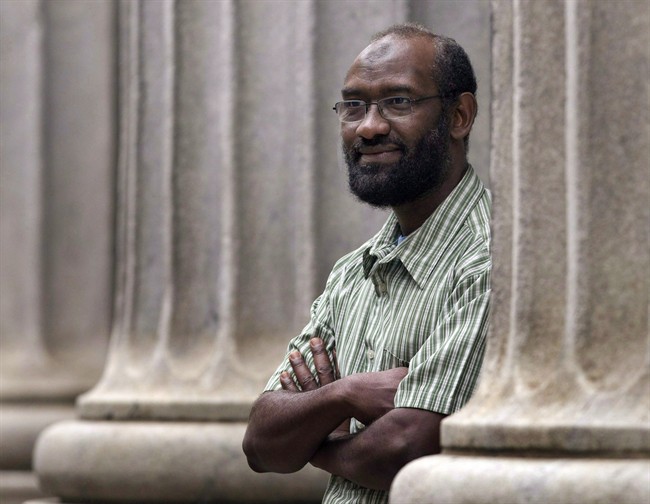OTTAWA – The federal government has quietly settled the lawsuit of a Montreal man who complained he was smeared by inflammatory and false accusations about extremist activities.

It is the latest twist in the saga of Abousfian Abdelrazik, who denies any involvement in terrorism.
Abdelrazik, 55, reached a “satisfactory settlement” with the government over a 2011 disclosure intended to discredit him, said Paul Champ, his lawyer.
The information appeared in an August 2011 article by Montreal newspaper La Presse based on secret documents and was subsequently reported by a number of national and international media outlets.
READ MORE: A chronology of major milestones in the Abousfian Abdelrazik affair
Terms of the settlement are confidential. However, Abdelrazik’s statement of claim, filed in Federal Court in 2013 and amended the following year, sought financial compensation.
Justice Department spokeswoman Francoise Trudeau-Reeves confirmed the settlement but declined to discuss details.
The RCMP’s criminal investigation into the leak continues, said Cpl. Annie Delisle, a spokeswoman for the police force.

Get breaking National news
Abdelrazik’s lawsuit said the only people who could have leaked the “selective and grossly unfair” secret documents in question were Canadian government officials.
In a statement of defence filed with the Federal Court, the government denied the allegations and any responsibility for the leak. It said the information published by La Presse was generally already on the public record through sources including media reports and court documentation.
Abdelrazik came from Africa as a refugee in 1990 and attained Canadian citizenship five years later.
READ MORE: Removed from UN terror list, Abdelrazik thanks Canadians, criticizes Ottawa
He was arrested but not charged during a 2003 visit to see his ailing mother in Sudan.
While in Sudanese custody, he was interrogated by the Canadian Security Intelligence Service about suspected extremist links.
Abdelrazik claims he was tortured by Sudanese intelligence officials during two periods of detention, but Canada says it knew nothing of the alleged abuse.
Days after Abdelrazik’s second release from prison, in July 2006, his name turned up on a United Nations Security Council blacklist that prevented him from flying back to Canada.
He was granted haven in the Canadian consulate in Khartoum, but Canada refused to issue him a travel document to fly home. Amid intense publicity about his case, he returned to Montreal in June 2009.
That same month, the Federal Court of Canada concluded CSIS was complicit in Abdelrazik’s 2003 detention.
The 2011 leak came as Abdelrazik was petitioning to have his name removed from the UN blacklist and “someone in the government felt it was an opportune moment to smear Mr Abdelrazik in this public way,” Champ said.
READ MORE: Man removed from UN terror list thanks Canadians, castigates the government
In its statement of defence, the government denies that allegation.
Abdelrazik’s name was removed from the UN list in late 2011.
In a separate lawsuit still grinding through the courts, Abdelrazik seeks compensation and an apology from the federal government for his prolonged ordeal in Sudan.
The Liberal government is expected to soon give apologies and compensation to three Canadians who were tortured in Syrian prison cells.
A federal inquiry concluded nine years ago that Canadian officials contributed to the brutalization of Abdullah Almalki, Ahmad El Maati and Muayyed Nureddin by sharing information with foreign agencies.







Comments